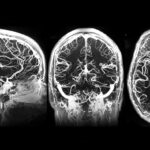About Craig Ferris
Academic research focuses on developmental behavioral neuroscience and disease progression in psychiatric and neurological disorders. Interests include the plasticity of the brain and how early emotional and environmental risk factors alter social and cognitive behaviors. Risk factors include drugs of abuse like cocaine and alcohol, social subjugation in the context of dominant/subordinate relationships, traumatic brain injury and gene mutations. Laboratory uses standard molecular and neurobiological techniques to study the brains of rodents. In addition, ultra-high field magnetic resonance imaging is used as a non-invasive tool for developmental studies in rodents and monkeys enabling one to follow changes in brain structure, chemistry and function in the same animal over the course of its life. The goal of research is to better understand the brain mechanisms contributing to psychiatric and neurological disorders in the hope of improving psychosocial and psychopharmacologic intervention strategies.
Prof. Ferris is a joint appointment between the College of Science and the Bouvé College of Health Sciences.
The Center for Translational NeuroImaging (CTNI) brings to the Northeastern campus state-of-the-art technology and expertise in the area of Magnetic Resonance Imaging (MRI) with the purpose of understanding the central nervous system in health and disease. High-field MRI offers the potential to visualize and quantify changes in brain function, plasticity, and chemistry as a consequence of environmental insults and genetic predisposition.
Work at the CTNI is focused on four major areas 1) Alzheimer’s disease, 2) Parkinson’s disease 3) repetitive mild traumatic brain injury, and 4) opioid addiction. Preclinical animal models for each of these problems in human health are studied using non-invasive magnetic resonance imaging to follow developmental changes in brain function and structure.



